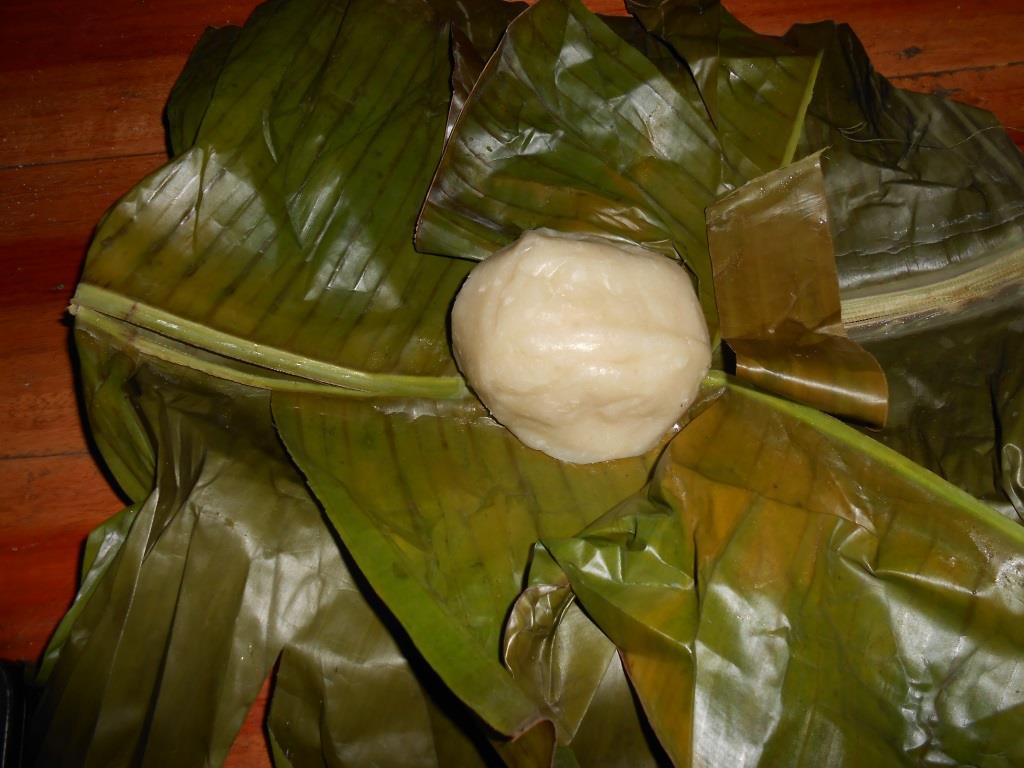Why “Moi Je Mange Pas Le Nem” Is More Than Just A Phrase
Have you ever heard someone say, “Moi je mange pas le nem”? If you’re scratching your head wondering what it means or why it’s become a thing, you’re not alone. This quirky phrase has been making waves in both casual conversations and online discussions. It’s more than just a simple statement about food preferences; it’s a cultural expression that carries deeper meanings. Whether you’re a linguistics enthusiast, a foodie, or just someone curious about global trends, this phrase is worth exploring.
In the world of language, there’s something fascinating about how phrases evolve. “Moi je mange pas le nem” translates to “I don’t eat spring rolls” in English. But its significance goes beyond dietary choices. It reflects cultural nuances, personal identity, and even humor. As we dive deeper into this topic, you’ll discover why this phrase has captured the attention of so many people worldwide.
Before we get into the nitty-gritty, let’s clarify one thing: this isn’t just about spring rolls. It’s about how language shapes our perception of the world and how small phrases can carry big meanings. So, whether you’re a fan of nem or not, stick around because this journey is going to be enlightening!
Understanding the Origins of “Moi Je Mange Pas Le Nem”
Where Did the Phrase Come From?
Language is a living entity, and phrases like “Moi je mange pas le nem” often emerge from unexpected places. Believe it or not, this phrase gained traction through social media platforms where users started using it as a playful way to express individuality. It all started with a viral meme that depicted a person refusing to eat spring rolls, sparking a wave of jokes and parodies.
But why spring rolls? Nem, or Vietnamese spring rolls, are a staple in many cultures, and their mention in this phrase adds an element of cultural specificity. This makes the phrase relatable yet unique. The humor lies in the absurdity of making such a strong statement about something as seemingly trivial as food.
How Did It Go Viral?
Virality is a strange beast. In the case of “Moi je mange pas le nem,” its rise to fame was fueled by its simplicity and the universal theme of dietary preferences. People love to share their quirks, and this phrase provided the perfect platform for that. Social media users began creating memes, TikToks, and even entire threads dedicated to the phrase, turning it into a cultural phenomenon.
Interestingly, the virality wasn’t limited to one region. From France to the United States, people from all walks of life embraced the phrase, proving that humor transcends borders. The phrase became a symbol of unity in diversity, bringing together individuals who might have nothing else in common.
Breaking Down the Meaning
Literal vs. Figurative Interpretation
At first glance, “Moi je mange pas le nem” seems straightforward: someone simply doesn’t eat spring rolls. But delve deeper, and you’ll find layers of meaning. Literally, it’s a statement about dietary habits. However, figuratively, it represents much more. It’s about asserting personal boundaries, embracing individuality, and even challenging societal norms.
In today’s world, where conformity often takes precedence, this phrase serves as a reminder that it’s okay to be different. It encourages people to stand by their choices, no matter how unconventional they may seem. This dual meaning is what makes the phrase so powerful and relatable.
Why Does It Resonate With People?
Humans are naturally drawn to stories and expressions that reflect their experiences. “Moi je mange pas le nem” resonates because it taps into universal themes like identity, preference, and humor. In a world where we’re constantly bombarded with expectations, this phrase offers a refreshing break. It’s a gentle reminder that it’s okay to say “no” and that your choices deserve respect.
Moreover, the phrase’s playful tone makes it approachable. It’s not confrontational or aggressive; instead, it’s lighthearted and fun. This approachability is key to its widespread appeal. People can laugh at the absurdity while also appreciating the underlying message.
The Cultural Impact of “Moi Je Mange Pas Le Nem”
A Reflection of Modern Society
Language is a mirror of society, and “Moi je mange pas le nem” reflects several modern trends. For starters, it highlights the growing importance of individuality. In an era where authenticity is valued, this phrase serves as a rallying cry for those who refuse to conform. It’s a celebration of personal choice and self-expression.
Additionally, the phrase sheds light on the intersection of food and culture. Food is a universal language, and discussing dietary preferences can open doors to cross-cultural understanding. By refusing nem, the speaker isn’t rejecting Vietnamese culture outright; rather, they’re asserting their own identity within a diverse cultural landscape.
How Has It Influenced Conversations?
The influence of “Moi je mange pas le nem” extends beyond social media. It has sparked meaningful discussions about identity, diversity, and acceptance. In classrooms, workplaces, and even family gatherings, people are using the phrase as a starting point for deeper conversations. It’s become a tool for exploring complex topics in an accessible way.
For instance, educators have used the phrase to teach students about cultural sensitivity. Businesses have incorporated it into marketing campaigns to promote inclusivity. Even politicians have referenced it in speeches to emphasize the importance of respecting individual choices. The phrase’s versatility is a testament to its cultural significance.
The Psychology Behind the Phrase
Why Do We Identify With It?
Psychologically, humans are wired to seek connections. When we hear someone say, “Moi je mange pas le nem,” we instinctively search for common ground. Perhaps we share a similar dietary preference, or maybe we relate to the feeling of standing up for ourselves. Whatever the reason, the phrase creates a sense of belonging.
Moreover, the phrase taps into our innate desire for humor. Humor is a universal coping mechanism, and “Moi je mange pas le nem” provides a lighthearted way to address serious topics. By laughing at the absurdity of the statement, we’re able to process deeper emotions and ideas.
What Does It Say About Us?
On a broader scale, “Moi je mange pas le nem” reveals a lot about contemporary society. It shows that we value authenticity and individuality. It also highlights our ability to find humor in the mundane. In a world that can sometimes feel overwhelming, this phrase offers a moment of levity and connection.
Furthermore, it demonstrates our capacity for empathy. By embracing the phrase, we’re acknowledging that everyone has their own preferences and experiences. This empathy fosters a more inclusive and understanding society, which is something we should all strive for.
Practical Applications of the Phrase
In Education
Educators have found creative ways to incorporate “Moi je mange pas le nem” into their lessons. Language teachers use it as an example of French sentence structure, while social studies teachers use it to discuss cultural identity. Even math teachers have gotten in on the fun, using the phrase to teach statistics by analyzing its popularity on social media.
By integrating the phrase into the curriculum, educators are making learning more engaging and relevant for students. They’re showing that education doesn’t have to be boring; it can be fun, relatable, and meaningful.
In Business
Businesses have also hopped on the “Moi je mange pas le nem” bandwagon. Some have used it in advertising campaigns to appeal to younger audiences. Others have incorporated it into product names or packaging designs. For example, a food company might create a line of snacks labeled “Moi je mange pas le nem,” catering to those with unique dietary preferences.
This strategic use of the phrase demonstrates the power of cultural relevance in marketing. By tapping into current trends, businesses can connect with consumers on a deeper level. It’s not just about selling a product; it’s about creating a shared experience.
Challenges and Criticisms
Is It Offensive?
As with any viral phrase, “Moi je mange pas le nem” has faced its share of criticism. Some argue that it could be seen as dismissive of Vietnamese culture, given that nem is a traditional dish. However, most proponents of the phrase emphasize that it’s not about rejecting the culture itself but rather asserting personal preferences.
It’s important to approach such discussions with nuance. While the phrase may seem innocuous, it’s crucial to consider the context in which it’s used. By engaging in open and respectful conversations, we can ensure that humor doesn’t come at the expense of cultural sensitivity.
How Can We Use It Responsibly?
To use “Moi je mange pas le nem” responsibly, we need to be mindful of its implications. This means being aware of the cultural significance of nem and respecting those who cherish it. It also means using the phrase in a way that promotes inclusivity rather than exclusion.
For instance, instead of using the phrase to mock someone’s food choices, we can use it as a conversation starter. We can ask questions, learn about different cultures, and celebrate diversity. By doing so, we turn a simple phrase into a tool for positive change.
The Future of “Moi Je Mange Pas Le Nem”
Will It Last?
Like all viral phenomena, the longevity of “Moi je mange pas le nem” remains uncertain. However, its impact is likely to endure. Even if the phrase itself fades from the spotlight, the conversations it sparked will continue. The themes of identity, diversity, and acceptance are timeless, and they’ll continue to resonate with people for years to come.
Moreover, the phrase has already left a mark on popular culture. It’s been referenced in books, movies, and even academic papers. Its influence extends beyond social media, proving that viral trends can have lasting effects.
What Can We Learn From It?
“Moi je mange pas le nem” teaches us several valuable lessons. First, it reminds us that humor can be a powerful tool for connection. Second, it shows us the importance of respecting individual choices. Finally, it highlights the potential for small phrases to spark big conversations.
As we move forward, let’s carry these lessons with us. Let’s continue to embrace diversity, celebrate individuality, and use humor to bridge gaps. After all, the world is a better place when we learn from each other.
Conclusion
“Moi je mange pas le nem” may seem like a simple phrase, but it’s so much more than that. It’s a cultural phenomenon that reflects our values, challenges our perspectives, and brings people together. From its origins on social media to its impact on education and business, this phrase has proven its relevance in today’s world.
As we’ve explored, the phrase offers valuable insights into identity, diversity, and humor. It encourages us to embrace our differences and celebrate our similarities. It reminds us that even the smallest expressions can carry profound meanings.
So, the next time you hear someone say, “Moi je mange pas le nem,” don’t just laugh. Take a moment to reflect on what it represents. Then, share your thoughts in the comments below. Let’s keep the conversation going and continue learning from each other. Who knows? You might just discover something new about yourself in the process.
Table of Contents
- Understanding the Origins of “Moi Je Mange Pas Le Nem”
- Breaking Down the Meaning
- The Cultural Impact of “Moi Je Mange Pas Le Nem”
- The Psychology Behind the Phrase
- Practical Applications of the Phrase
- Challenges and Criticisms
- The Future of “Moi Je Mange Pas Le Nem”
- Conclusion

Pourquoi Jai Pas Mange Mon Pere tomouth

Moi je mange ça ! So what ? My voice My voice

Moi j'mange (2019auj.) Émission (Magazine, Cuisine)